Stay in the know on all smart updates of your favorite topics.
Scale-up trade mission to Berlin

Would you like to expose large organisations like Siemens, Innogy, Bosch Software Innovations, Volkswagen or Schindler to your innovative digital service or product? Check out our scale-up trade mission to Berlin end of October. Check whether you meet the criteria and apply to be selected via the link. Don't read Dutch? Don't worry, we've got you covered, just get in touch with Anne Lieke Vonk (annelieke@dutchbasecamp.org) or anyone at DutchBasecamp. Organised together with the RVO and the Dutch Embassy in Berlin.
#berlin #scaleup #trademission #meetyourcustomer
'Do you accept the terms and conditions?'
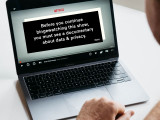
A streaming service that stops in the middle of the film to explain the privacy conditions extensively. A toaster that only toasts half of your bread if you consume too much electricity in your home. A platform that collects and combines social media updates to determine when you are not at home, and therefore vulnerable to a burglary.
How can you, as a designer, build and express friction into your product, so that the user is helped to critically reflect on technology and possibly even link actions to it? Such design principles are expressed in adversarial and reflective design.
During this meetup, in collaboration with Hackers & Designers and SURF, we explore the potential of adversarial and reflective design as a means to create awareness about ethical dilemmas surrounding digital technology and privacy. You do not need a background in design or technology to participate in the workshop.
Tickets cost 5 euro (including a drink)
This event is in Dutch, unless there are many English speakers in the audience.
Programme
20:00 Introduction Gijs Boerwinkel (DECODE & Waag)
20:05 Arnout Terpstra, PhD researcher at Tilburg University and product manager at SURF, examines the potential of adversarial design for privacy.
20:20 Anja Groten, Hackers & Designers, discusses the notion of friction as a method to critically reflect on collective design processes.
20:35 Mini-design challenge: think of an intervention that provides friction, reflection and more control for the user (focus: privacy and personal data online)
21:30 Presentations and reflection on the concepts
22:00 Closing
WANTED: Launching customer for AI audio analysis project with Google, ML6 and SensorTeam
Google, ML6 and SensorTeam are joining forces and are looking for your help
We have started a proof of concept to recognize sound by expanding our cutting edge wireless sensor-technology with AI based audio analysis models from ML6.
SensorTeam’s IoT SoundSensor™ is an extremely accurate and cheap sound sensor which is solar powered, LoRaWAN compliant and LTE-M ready. This plug-and-play outdoor sensor runs autonomously anywhere in the world.
Sound recognition from regular ambient noise can be interesting for many reasons:
- Smart maintenance and Industry application
- Social noise disturbances from festivals, events or terrasses
- Public safety: gunshots, explosives, angry crowds
- Noise impact of airplanes, trains or highways
- Indoor noise solutions (office, security)
- Your idea here ;)
Interested in our technology or a mutually beneficial collaboration with Google/ML6 and SensorTeam? Do you have a relevant use case for our technology? Please contact us by sending an email to info@sensorteam.io.
Sensemakers IoT: Networking & presentations
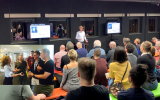
Talk 1: Lorna Goulden, director Digital Experience, initiator of Eindhoven IoT meetup.
Talk 2: A backbone for crowdsourcing citizen-sensordata @ SurfSara
Sensemakers is involved in collaborations on gathering data around sound-polution, waterquality and more. We will give you an update on these projects and learnings and David Šálek from SurfSara will explain the backbone they have configured for us and the ways it can be used (dashboard, create your own graphs, create (a) Jupyter notebook(s) to access the cooked and raw data and do anything with the data Python allows, publication service via MQTT)
IoT changing perspectives
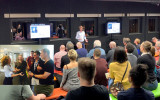
The more smart objects (things) and our surroundings become the more our behavior is anticipated but also influenced. How does IoT change our perspectives?
After an introduction on the increasing complexity and influence of IoT (irt smart cities, AI and cybercrime), Iskander Smit will discuss what it means when things can predict and anticipate our behavior.
Seeking programmers for social good to help identify disinformation campaigns around EU elections.
Do you care deeply about democracy and the freedom of individual citizens to access unbiased information? Do you want to help analyze and understand disinformation campaigns around the European Election?
The Amsterdam Working Group on Disinformation is looking for volunteers with experience in one or more of the following skills:
Python, JavaScript, Data Analysis, Web Development.
We are a volunteer-based collective based in Amsterdam’s A Lab committed to assisting the general public in better understanding the threat disinformation poses to civil participation in democratic processes.
Our data processing team is seeking contributors who are willing to participate in the data analysis process that supports investigative journalism and shed light on the spread of disinformation in Europe.
If you have a minimum of one day a week, would like to work with an amazing group of journalists, researchers, anthropologists, data scientists, and creatives in a very inspiring environment, then please contact Árpád Gerecsey, arpad@a-lab.nl
How do you build privacy-friendly systems?
Suppose you want to know how many cars travel across a certain road. You could build a system that registers all license plates driving by. But you could opt for a system that will simply place a tally mark for every car that passes by. Both systems serve the same function: they count cars. However, the first one is a privacy nightmare. The second system is designed in such a way that it cannot document any personal information. Privacy is not a factor that you can just tack on a system after the fact; it needs to be included in the design phase as a requirement. This design philosophy is called privacy-by-design. Can we work towards Tada-by-design?
We think we can.
Read all about it on the Tada blog:
Tada and the City of Amsterdam: The first six months.
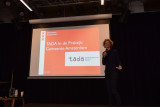
From https://tada.city - Reading time: 6-8 minutes
“Tada is a movement,” says Douwe Schmidt during the opening of the Tada in practice meeting. “It is the interaction of a large number of organizations and individuals that are focusing on the question: ‘What kind of digital society do we want?’ It is no longer a matter of determining whether or not we will have one. Now it is all about how to put that society into practice.” Over the past four months, the Municipality of Amsterdam and Bureau Tada have worked together to explore how the six Tada values can be put into practice. At the meeting, insights were shared with nearly sixty participants.
The practical implementation of Tada does not translate into a one size fits all approach. Unlike prescriptive legislation such as the General Data Protection Regulation, Tada is not a user manual that provides specific rules. Ethical principles like ‘the human factor’ and ‘from everyone – for everyone’ are soft values that need to be reinterpreted time and again. “Ethics cannot be outsourced,” says Tessa Wernink, who partners with Schmidt in Bureau Tada. “It is important for everyone to think about that in their work. Tada has taken the first steps by formulating six principles. These six points are not much different than established ethical values. But now it is a matter of applying them to the digital domain.”
“It is allowed, but we won’t do it”
Two speakers share stories from their own practice. Koen van Nol, legal expert at Schiphol, is involved in a pilot project involving ‘biometric boarding’ at the airport. In the experiment, boarding pass checks and passport checks are replaced with facial recognition. One of the insights Van Nol shares is that your organization’s identity plays a role in the decision-making process. “At each step, we verify whether it is legally allowed and whether it is technically possible. But in some cases, we reach the conclusion: it is allowed, it is possible, but we are not going to do it. That has to deal with the Schiphol identity. I have noticed in conversations with colleagues that Schiphol employees consider that very important. As a semi-government body, we believe that we hold a certain responsibility towards our customers.”
Jaap-Henk Hoepman, senior university lecturer at Radboud University in Nijmegen, explains how to make abstract values more tangible, transposing them into technical projects: “Privacy is a soft term. It is partly about ethics and partly about legal aspects. That makes it harder to implement than more tangible software attributes like security or performance.” To offset that, Hoepman developed eight privacy-by-design strategies. One of those strategies is minimization: do not collect more data than necessary. Another is abstraction: only share the specific information that is needed. For instance: the Gall&Gall sales employee does not actually need to know your date of birth; they just need to know if you are over 18.
Lessons Learned
G4 trainee Milou Jansen then stepped up on stage. For six months, she worked with Tada Agency on implementing Tada in the Municipality of Amsterdam, adopting the role of Values & Digitalization consultant. She shared some insights that recurred frequently during that project: Decisions about responsible data use must be taken at all levels of the organization. However, it is still all too common to see such decisions ending up with the data analysts. This could result in the unintended situation where data analysts become some type of gatekeepers, who need to encourage other people to use data responsibly. It is important for other employees to also consider this their responsibility. As a result, thinking about data use becomes an integrated part of everyone’s work. By extension, clients and contractors share a joint responsibility for data use. It is therefore important to discuss this at the beginning of a project. Take the time early in the process to carefully consider everything together. That will prevent delays later on in the process: take a moment to think at the start so you can accelerate later.
What can we do in tangible terms?
Milou Jansen bids farewell to the Municipality of Amsterdam to continue her traineeship in Utrecht. That is why she invited the attendees to join her in considering the question: ‘what next?’ during the interactive part of the meeting. The attendees joined in a discussion about applying Tada in the Municipality of Amsterdam. The discussion clearly revealed two things. On the one hand, it was considered valuable that Tada does not provide strict guidelines, but rather requires constant reflection. On the other hand, there is also a need for certainty – not just for civil servants, but also for citizens who need to be able to monitor what the municipal authorities are doing. People offered ideas related to both aspects in order to anchor Tada in the organization.
First, people in the organization need to become aware of Tada. Communication as well as meetings arranged within the organization will help create support amongst municipal employees. That should lead to a sense of responsibility which is felt by all the process owners, not just the specialists. Tada is not an exact science, so it requires employees to use their moral compass. That takes time: time to think, time to engage in dialogue, time to ask each other questions. People also mentioned developing a course on Tada, ethics and technology, and appointing ambassadors.
A number of suggestions were also made for ways to express Tada in more tangible terms. Pick a spot on the horizon: what is our course of action with Tada? Based on that distant view, we can draw up clear policy frameworks and work processes. Also appoint watchdogs that monitor the Municipality – like consultative groups, ethical advisory committees or a digital union. Finally, someone suggested expressing the abstract Tada values in more tangible terms by providing examples from actual practice. That will create common ground based on examples.
The conclusion of the overall discussion was that a cultural change is needed. The word Tada should not evoke confused questions; instead, it should be met with enthusiastic recognition. Not: Tada? But: Tada!
The Tada in practice meeting was a co-production of the Municipality of Amsterdam and Bureau Tada. It took place on 20 February 2019 at the Stadstimmertuin in Amsterdam.
Tada principes opgenomen in Agenda Digitale Stad
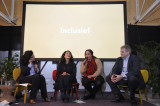
De eerste Amsterdamse Agenda voor de Digitale Stad werd op 1 maart gelanceerd. De agenda getiteld ‘Een digitale stad voor én van iedereen’ streeft naar een vrije, inclusieve en creatieve digitale stad. Verantwoord gebruik van data is daar een onderdeel van. Eén van de acties om dat te bereiken is de implementatie van het Tada manifest.
Wethouder Digitale Stad Touria Meliani presenteerde de Agenda in het vrolijk ogende pand van The Beach/Garage Notweg, een laboratorium voor sociale en duurzame innovatie in Nieuw-West. Ze wist meteen de aandacht te vangen van het 150 koppige publiek door het delen van persoonlijke data. Op het scherm toonde ze een WhatsApp gesprek met haar moeder. “Mijn moeder zou het liefst willen dat ik elke week op bezoek kom, maar dat kan niet want ze woont ver weg. Daarom delen we veel via WhatsApp. Ze is laaggeletterd daarom communiceren we veel via foto’s en audioberichten. We hebben persoonlijke gesprekken via dit systeem maar we weten niet wat er met die berichten gebeurd. Mensen stoppen hart en ziel in hun telefoon maar de bedrijven die achter deze technologie zitten, hebben andere bedoelingen. Hier zie je op een heel alledaags niveau een risico van digitalisering. De digitale stad gaat over de mensen die daar mee te maken hebben. En dat zijn wij allemaal.”
Amsterdam implementeert Tada manifest
Met haar voorbeeld legde wethouder Meliani één van de uitdagingen bloot die in de Digitale Agenda wordt benoemd. De dataverzameldrang leidt ertoe dat sommige partijen steeds meer macht krijgen. De data kan worden aangewend om gedrag te beïnvloeden en mensen te manipuleren. Daarmee wordt de vrijheid van Amsterdammers aangetast. De stad wil hier tegenwicht aan bieden. Amsterdam zet zich in voor betere regels die de privacy en autonomie van burgers waarborgen. Dat doet het niet alleen, maar in samenwerkingsverbanden op nationaal en internationaal niveau. Op lokaal niveau voegt de gemeente daad bij woord door verantwoord met data om te gaan. In het komend jaar gaat ze de Tada principes in de eigen organisatie implementeren.
In discussie over technologie
Douwe Schmidt van Bureau Tada kreeg het woord om het publiek meer over Tada te vertellen. “Tada is ontstaan uit een brede coalitie van burgers en organisaties. Die zijn in gesprek gegaan over de digitale stad en hoe we die willen vormgeven. Daar is het manifest ‘Tada – duidelijk over data’ uitgerold. Hierin worden zes principes benoemd die in de digitale stad zouden moeten gelden.” Een van die principes is bijvoorbeeld ‘inclusief’: de digitale stad moet, net als de fysieke stad, toegankelijk zijn voor iedereen.
Schmidt: “De volgende stap is om de Tada principes in de praktijk te brengen. Hoe vertaal je die abstracte waarden in iets concreets? Bureau Tada werkt samen met de gemeente om daar vorm aan te geven. We hebben workshops ontwikkelt waarin we praktisch met Tada aan de slag gaan. Eén van de methoden die we gebruiken is het spectogram. Daarmee starten we een discussie door naar concrete casussen te kijken.”Om een beter idee te krijgen hoe dat werkt, nodigde Schmidt de 150 aanwezigen uit deel te nemen aan een principiële discussie over technologie. Hij legde het publiek een stelling voor. Wie voor was ging staan, tegenstemmers bleven zitten. Bij de stelling ‘Amsterdam zal nooit gezichtsherkenning gebruiken’ stond een flink aantal mensen op. “Er wordt al op zoveel plekken data opgeslagen”, zei één van de voorstemmers, “en we hebben geen idee wat er mee gebeurd. Dus laten we voorlopig even wachten met het aanleggen van nog meer dataopslagplaatsen.” Een tegenstemmer beargumenteerde: “De bezwaren die je kan hebben tegen gezichtsherkenning, kan je te niet doen met technische oplossingen en goede regels.” Er was ook iemand die zich in beide standpunten niet kon vinden: “Je moet niet van die boude uitspraken doen waarin het alles of niets is. Misschien vind je dat je geen camera’s met gezichtsherkennning op straat moeten worden geplaatst. Daar kan je een debat over voeren. Maar vooraf technologieën uitsluiten zonder daar een gesprek over te voeren, is niet de juiste weg.” Schmidt: “Zo zie je maar dat als je casussen gaat bespreken er direct discussie ontstaat. Mensen willen hier met elkaar van gedachte over wisselen. Tada is begonnen met het benoemen van principes waar we de digitale stad op willen stoelen. Nu maken we een verdiepingsslag door er met elkaar over te praten en de principes concreet toe gaan passen.”
Privacy in de digitale stad
Na de presentatie van Tada nodigde wethouder Meliani verschillende mensen uit op het podium. Voor het ontwikkelen van de Digitale Agenda legde ze veel werkbezoeken af. Ze ontmoette veel mensen die haar inspireerden. Met een aantal van hen ging ze tijdens de lancering in gesprek. Met Marleen Stikker van De Waag sprak ze over privacy. Stikker: “Het woord privacy is aan erosie onderhevig daarom spreek ik liever over zelfbeschikking. Zeg je privacy dan hoor je vaak: ‘ik heb niets te verbergen’. Maar het gaat er niet om of je iets op je kerfstok hebt staan. Dat zie je aan het gesprek tussen wethouder Meliani en haar moeder. Het gaat om de wens de privé sfeer te behouden. Bij zelfbeschikking gaat het over de vraag: maken wij nog onze eigen keuze? We worden genudged en gemanipuleerd. Zelfbeschikking is een hoeksteen van de rechtstaat. Maar op het digitale gebied wordt ons heel veel uit handen genomen.”
Mark Wiebes van de Nationale Politie zei over privacy: “Tijdens de Tada discussie kwam het dilemma van gezichtsherkenning herkenning aan de orde. Het is heel verleidelijk om dat soort technieken in te zetten voor opsporingsonderzoek. Maar iedereen die bij de politie gaat, zweert een eed om burgers en burgervrijheden te beschermen. Privacy is één van die vrijheden. Maar technologie moet je ook niet zonder meer aan de kant zetten. Het niet gebruiken van technologie heeft ook een prijs. Dus moet je verschillende mogelijkheden overwegen. Bijvoorbeeld het inbedden van privacyregels in de technologie.”
De wethouder vertelde over twee concrete acties uit de Digitale Agenda die de privacy van Amsterdammers doet verhogen: “Alle burgers krijgen een Mijn Amsterdam, een persoonlijke digitale omgeving. Hier kan je inzien welke gegevens de gemeente over jou heeft opgeslagen.” Daarnaast wordt half maart een digitale kaart gelanceerd waarop slimme apparaten zijn aangegeven. Hierop kunnen burgers zien waar de gemeente camera’s en andere meetinstrumenten heeft geplaatst. Ook kan worden bekeken welk type data de sensoren verzamelen.
Een inclusieve digitale stad
Over de inclusieve stad sprak de wethouder met Fatimzahra Baba van stichting Saaam. Saaam helpt laaggeletterde moeders bij het begrijpen van social media. Hun kinderen gebruiken social media en hebben zo een wereld waar de ouders niet bij kunnen. Er worden onderwerpen besproken als exposing (het delen van ongewenste foto’s of verhalen op social media). Een dochter die dat had ondervonden was depressief geraakt. Ze praten met elkaar over hoe de digitale weerbaarheid van hun kinderen te vergroten. Baba: “Over laaggeletterde moeders wordt vaak gezegd: ‘Ze kunnen niet en ze willen niet’. Maar dat is niet waar. Ze willen wel!”
“Inclusief betekent ook dat iedereen mee moet kunnen doen”, zei de wethouder. “Daarin hebben we als gemeente ook stappen gezet. We hebben met verschillende mensen om de tafel gezeten. Iemand met een fysieke beperking, een slechtziende. Zij wezen ons op tekortkomingen. Een slechthorende gaf aan dat sommige gemeentelijke informatie alleen telefonisch opgevraagd kan worden. Deze mensen moeten de digitale stad mee gaan ontwerpen. We zijn nog te weinig in staat vanuit een ander perspectief naar mensen te kijken. Maar als we een inclusieve stad willen is dat wel nodig.”
De bijeenkomst werd afgesloten met de officiële lancering van de eerste Amsterdamse Agenda Digitale Stad. In het voorwoord stelt wethouder Meliani: “De stad is van iedereen, de digitale stad ook.”
Check de Agenda Digitale Stad hier: <https://amsterdamsmartcity.com/posts/agenda-digitale-stad-gelanceerd>
Foto: v.l.n.r. Gülden Ilmaz (moderator), wethouder Touria Meliani, Fatimzahra Baba - stichting Saaam, Sander Klous hoogleraar Big Data Ecosystems Universiteit van Amsterdam.
(c) Henk Rougoor
Amsterdam Smart City - De Digitale Stad

Technologie speelt een steeds grotere rol in ons dagelijks leven. Maar ook in steden wordt digitalisering steeds belangrijker. Hoe houden we met een Smart City aanpak de Metropoolregio Amsterdam leefbaar? Hoe zorgen we dat digitalisering menselijk en voor iedereen toegankelijk blijft? Tijdens deze sessie van Amsterdam Smart City (ASC) kijken we naar verschillende projecten rondom digitaal ondernemerschap. Je krijgt de kans mee te denken over projecten met ASC en een aantal van haar partners. Wat zijn de ideeën van de gemeente? Op welke manier geven verschillende projecten vorm aan de digitale stad? En wat kan jij als bewoner van de stad doen?
Amsterdam Smart City
Amsterdam staat op plek drie in de European Digital City Index, die aangeeft in welke mate steden digitaal ondernemerschap ondersteunen. Amsterdam Smart City (ASC) speelt hier een belangrijke rol in. Met hun open innovatieplatform jagen ze transities aan, waarbij mensen centraal staan. Met verschillende partners verkent, verbindt en versnelt ASC technologische en sociale innovatie projecten in steden om tot een toekomstbestendige Metropoolregio te komen. Hoe verloopt de smart transition van steden? Wat is de toegevoegde waarde van smart innovation voor de Metropoolregio en haar inwoners? En welke rol speel jij in deze transitie?
ASC werkt met een focus op openheid en transparantie, het centraal stellen van de bewoner en samenwerking tussen publieke en private partijen. Één van de partners is de Gemeente Amsterdam. Zij zullen tijdens deze avond de Agenda Digitale Stad presenteren. Op welke manier zijn verschillende projecten van ASC al bezig om de uitgangspunten in de praktijk te brengen? En hoe zou jij zelf deze uitgangspunten vormgeven in de praktijk?
LET OP: Aanmelden via de site van Pakhuis de Zwijger: https://dezwijger.nl/programma/de-digitale-stad
Citizens Panel Amsterdam
Op 25 februari 2019 organiseren de Gemeente Amsterdam en Waag het Citizens Panel Amsterdam over de toekomst van de digitale samenleving. Discussieer mee en vorm samen een nieuwe koers voor de toekomst, de beste ideeën worden op de Mayors Summit in Brussel gepresenteerd.
In heel Europa worden citizens’ panels georganiseerd in aanloop naar de Europese verkiezingen in mei. Wat vind jij dat er op de agenda moet als het gaat om jouw data? Biedt de digitalisering nieuwe mogelijkheden of zie je vooral de keerzijden? Kom ook en praat mee!
"Is Google je beste vriend?"
Grote technologiebedrijven trekken gebruikers aan met prachtige, 'gratis' producten. Maar voor deze diensten lever je een deel van je privacy in. Hoe wenselijk is dat? Misschien willen we de gegevens delen die we genereren, of misschien niet: hoe dan ook, we willen dat graag zelf bepalen.
De gemeente vraagt zich bijvoorbeeld af hoe burgers en bedrijven hun gegevens kunnen delen, terwijl iedereen controle houdt over hun persoonlijke gegevens. Moet de overheid een rol spelen bij dit eigenaarschap over data? Hoe moeten burgers geïnformeerd worden? En hoe willen we deze data gebruiken?
Wil je meepraten over de online samenleving, over veiligheid, toegankelijkheid, eigenaarschap en privacy, en bovenal over de (on)mogelijkheden van je online 'jij'?
De toegang is gratis. Er wordt Nederlands gesproken.
Programma
Programma
19.00 Inloop
19.30 Welkom en inleiding
19.40 Gesprek met Marleen Stikker en Saskia Nijs
19.50 Introductie tot citizens panel, moderatie door Kevin de Randamie
20.00 Ronde 1: Wat speelt er allemaal?
20.30 Intermezzo
20.40 Introductie tot ronde 2
20.45 Ronde 2: Wat willen we?
21.10 Stellingen verzamelen en stemmen
21.25 Plenaire afsluiting
21.30 Borrel
Het Citizens Panel Amsterdam wordt georganiseerd door EUROCITIES, de Gemeente Amsterdam, OBA en Waag. EUROCITIES is een netwerk van grote Europese steden.
5G
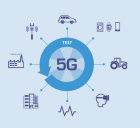
5G will be the new generation of mobile connectivity. The connection will be faster and more reliable, and will bring previously unknown possibilities for citizens and business. Amsterdam is exploring the opportunities and obstacles on the road to a safe and useful 5G network. One of the ways we do this is with our field lab in Amsterdam South East, from the train station to the Johan Cruijff ArenA. But also through regional, national and international collaborations.
Smart Data, Smart City #1: Data dilemma’s doorgronden

De mogelijkheden van data en nieuwe technologieën voor stedelijke uitdagingen zijn eindeloos. Met data maken we steden veiliger, schoner en bijvoorbeeld ook beter toegankelijk. Maar wat gebeurt er met alle gegevens die worden verzameld? Wie mag ze verzamelen? Van wie zijn ze? En welke verantwoordelijkheid heb jij hierin? Deze vragen zijn voor iedereen belangrijk; voor overheden, inwoners en voor bedrijven. Amsterdam Smart City wil graag samen met jullie verkennen welke beslissingen nodig zijn voor verantwoord gebruik van data!
In deel 1: Tada. Tada biedt zes uitgangspunten voor een verantwoorde digitale stad. In het manifest staat bijvoorbeeld dat het verzamelen van data open en transparant moeten gebeuren, data dienend zijn aan mensen en verzamelde data in de stad van en voor iedereen is.
De gemeente Amsterdam heeft de principes van Tada omarmd, maar hoe kunnen deze principes ook voor bedrijven werken? Welke ethische beslissingen kom jij tegen in datagestuurde projecten? Hoe zorg je ervoor dat processen leiden tot een verantwoorde omgang met data? Welke voordelen levert het op? Wat kun je van anderen leren?
Tessa Wernink en Douwe Schmidt van Tada zullen enkele dilemma's presenteren en met je in gesprek gaan!
Praktische informatie:
- Datum: 28 februari
- Locatie: Datalab, Weesperstraat 113, Amsterdam
- 15.45 uur Walk-in
- 16.00 - 17.15 uur
Introductie door Amsterdam Smart City
Presentatie door Tada
Dilemma’s delen
Case: Tada in de praktijk
- 17.15 - 18.15 borrel
Er staan nog twee evenememten van Amsterdam Smart City in Datalab op stapel, gericht op digitale publieke waarden en het gebruik van gegevens. Heb je suggesties of ideeën voor deze evenementen? Wil je zelf een rol spelen? Stuur een bericht naar Nancy Zikken via nancy@amsterdamsmartcity.com!
Amsterdam Data Exchange (AMDEX)

If data is the new gold, how can we ensure that we can all benefit from the possibilities?
Read the report about the principles of AMDEX (link)
The idea originated during the Science and Business dinner organized by Amsterdam Science Park (ASP). With Science Park’s history in the field of technological innovation and digital connectivity, the Amdex was a logical next step. As argued by Margo Keizer (ASP), "data sharing is already happening here, but at an informal level. We bring all these different initiatives together. To do this, we need to address various infrastructural and legal issues." The Amsterdam Data Exchange is an initiative to do exactly that, she adds.
Wouter Los questions: "how can we work efficiently with all this data?” With his extensive experience in the European scientific community, Los helped in the investigation of the function of the data marketplace. He explains "we want to go to an open, democratic playing field. In this model - in contrast to the monopolistic models that you now come across - the data remains from its owner and they decide which data can be shared with whom and under what conditions. We build a market model in which everyone is able to consult and use data in a transparent, familiar manner."
Chief Technology Officer, Ger Baron mentions, "since 2011, the municipality have had an open data policy. Municipal data is from the community and must therefore be available to everyone, unless privacy is at stake. In recent years we have learned to open up data in different ways.” He adds, “panorama photos, for example, are freely accessible on our data portal. In addition, we share data with market parties to find a parking space. We want to share data, but under the right conditions. This requires a transparent date market which is exactly what the Amsterdam Data Exchange can offer."
Smart Humanity – Hackathon
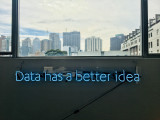
Is de mens altijd slimmer dan de techniek, of kunnen we techniek zo inrichten dat de mens er niet doorheen kan?
Op de bovenste verdieping van het Eye Filmmuseum zal tijdens Smart Humanity, op 13 december 2018, een hackathon plaatsvinden. Je kunt als team of als individu inschrijven in een van de divisies passend bij je niveau. Ook zijn er masterclasses waar je de basis kunt leren en daarna meteen in de praktijk mag brengen met een echte ‘capture the flag’. Lukt het jouw team om meer punten te scoren dan de andere teams? Schrijf je snel in en mis geen seconde van dit event!
Deze hackathon is speciaal! Het is namelijk de eerste keer dat Tesorion, Defensie, Politie en NCTV in 1 hackathon samenwerken. Ook is nieuw dat er verschillende niveau’s zijn:
– Beginners kunnen een masterclass volgen en worden de verdere dag ondersteund
– Voor gevorderden en professionals zijn er specifieke casussen vanuit Tesorion, Defensie, Politie en NCTV.
De minimum leeftijd voor deelname is 15 jaar. Iedereen die zich individueel inschrijft wordt later in een team geplaatst. Deelname aan de hackathon is gratis.
Prijzen
Prijzen die je kan winnen zijn afstudeer stages en gesprekken voor een baan of opdracht.
Let's Startup 2019
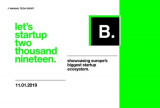
On Friday, January 11 2019 we will start the new year with our annual tech
festival “Let’s Startup”. On this day we celebrate our members as well as the industry and everybody is welcome! Let’s Startup is a festival codesigned with our B. members, to celebrate entrepreneurship at B. and bring together our extensive international network.
What to expect?
During the festival, expect a myriad of workshops, masterclasses, speed dating and networking opportunities to help you build, grow and scale your business. We will also take the opportunity to kick off some new services and programs at B. that will help ease community collaboration and contribute to the growth of our members. At night, we’ll bring everyone together to raise glass to the new year and dance.
How does it work?
All activities at the festival are divided in three pillars: fast growing
companies, future talent and corporate innovation. Also, there is a main stage with some keynote speakers and panels with industry leaders. Members are invited to apply for a spot at our festival. Think of hosting a workshop or masterclass or providing an interactive showcase of your product or service. We encourage all of you to contribute and attend this annual community festival.
The Black Box Bellagio

Welcome to the Black Box Bellagio - an unusual casino that won’t take your money, but is after your freedom, integrity and private data instead. Play with the (un)fairness of expected values, predicted risks, and giving up your identity. Disclaimer: The house always seems to win.
The internet services we think of as free are often paid for with our data: it is the price of access, and is used to determine our treatment and advantages. Our data feeds the algorithms which can unfairly or wrongly categorise, exclude or discriminate against us. The Black Box Bellagio uses the dynamics of a casino to communicate the asymmetry of this relationship. At this casino, like on the internet, your personal data determines the advantages you get, the luck and misfortune you experience, and how much it really costs you to play.
The Black Box Bellagio has been developed by Roos Groothuizen (1992, NL), an Amsterdam/Utrecht-based designer and artist, who cares about digital rights. Fascinated with the unfair distribution of information and how online algorithms systematically discriminate us, her work reflects on in-depth research and recent developments, often with interactive or game-like elements. The Black Box Bellagio has been realized in collaboration with Ymer Marinus and the Waag.
Film documentation from De Nieuwe Anita (May 2018), by Jimena Gauna for Waag:
The Black Box Bellagio at de Nieuwe Anita / Aftermovie
This project has received funding from the European Union’s Horizon 2020 research and innovation programme under grant agreement No. 732546. The Black Box Bellagio is organised as part of DECODE, a project developed by 14 European partners. Through this casino DECODE aims to engage a new group of people in conversations about personal data, privacy and data commons.
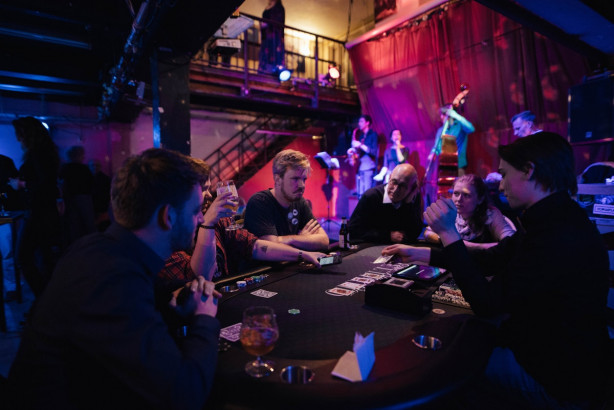
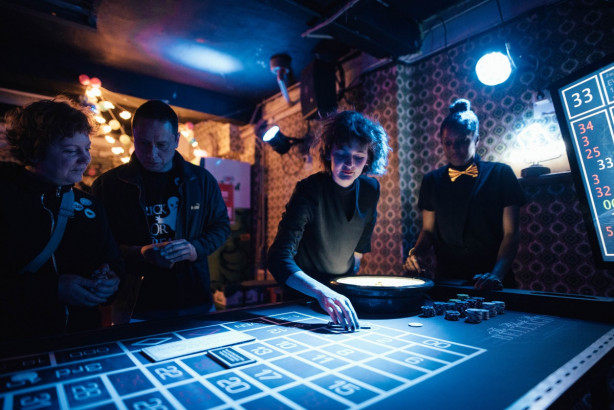
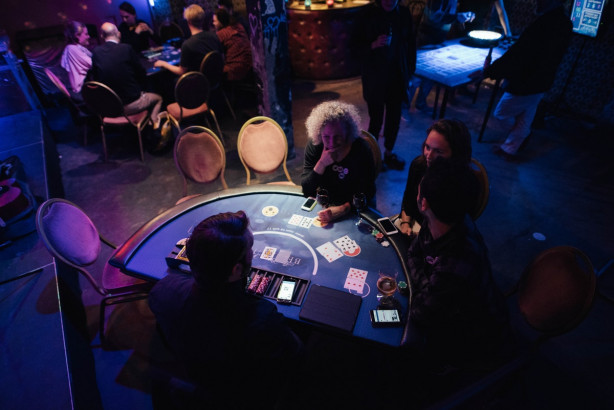
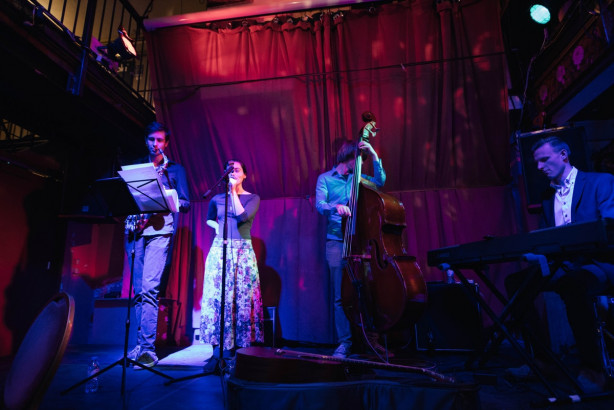
Pictures by Jimena Gauna for Waag
More picture and information: Click here
Amsterdam, Barcelona and New York start collaboration on digital rights (in Dutch)
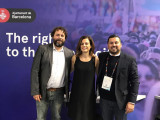
Amsterdam, New York en Barcelona hebben vandaag een coalitie gelanceerd om op te komen voor digitale rechten. De drie steden vinden het belangrijk dat inwoners online dezelfde rechten hebben als offline. De samenwerking is gepresenteerd tijdens het Smart City Expo World Congres in Barcelona op woensdag 14 november.
Digitale technologie maakt ons dagelijks leven makkelijker. Tegelijkertijd worden we ons meer bewust van de risico’s. Over de rechten die mensen digitaal hebben, zijn bijvoorbeeld geen duidelijke afspraken gemaakt. Daar willen Amsterdam, Barcelona en New York verandering in brengen. Zij willen opkomen voor mensenrechten op internet. Overheden kunnen meer doen om deze rechten te beschermen. Amsterdam neemt samen met Barcelona en New York het voortouw door een coalitie van steden voor digitale rechten op te richten.
De coalitie voor digitale rechten maakt gezamenlijk beleid, een actieplan en (hulp)middelen op basis van vijf gedeelde principes. De principes uit de verklaring van digitale rechten zijn:
1. Universele en gelijke toegang tot internet, digitale geletterdheid;
2. Privacy, data bescherming en veiligheid;
3. Transparantie, verantwoordelijkheid en niet-discriminatie;
4. Participatieve democratie, diversiteit en inclusie;
5. Open en ethische digitale standaarden.
De komende tijd sluiten meer steden zich aan om kennis uit te wisselen en digitale mensenrechten te beschermen. Het Human Settlements Program (UN Habitat) van de Verenigde Naties helpt hierbij.
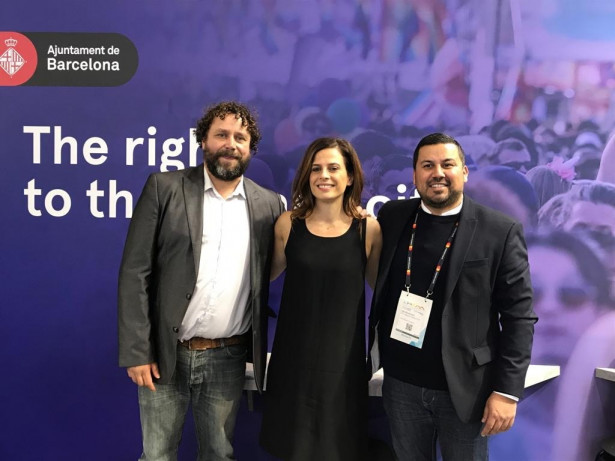
Foto: Ger Baron (CTO, Amsterdam), Francesca Bria (CTO, Barcelona), Alby Bocanegra (CTO, New York)
Nederland en de Smart City Expo
Het Smart City Expo World Congres is een jaarlijks terugkerend evenement waar steden en bedrijven van over de hele wereld samenkomen om stedelijke innovaties te bespreken. Er is veel aandacht voor digitale innovaties, welke steeds meer leidend zullen zijn in de steden van de toekomst. Amsterdam Smart City is aanwezig als onderdeel van de Nederlandse delegatie om het nationale en internationale netwerk te versterken, te leren van andere steden en zo innovaties beter in te kunnen zetten voor grootstedelijke uitdagingen.
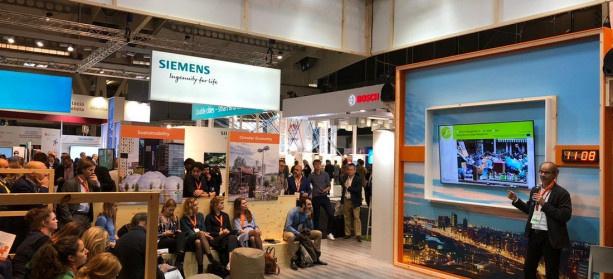 Duidelijk over data
Duidelijk over data
In de Metropoolregio Amsterdam wordt gestreefd naar een mensgerichte benadering van technologie. Zo is het manifest "Tada, duidelijk over data" –ontwikkeld met lokale bedrijven, academici en bewoners . Hierin is aandacht voor concepten als inclusie, transparantie en ethisch gebruik van informatie.
Voor meer informatie, bezoek citiesfordigitalrights.org.
FOR ENGLISH: Click here to see the press release by the city of Amsterdam <https://www.amsterdam.nl/en/press-releases/digital-rights/>
We wrote a book about the Governance of the Smart City (in Dutch)
But we will tell about it in English at the Smart City Expo in Barcelona. The book is about ethics and policy. A lot is possible using data, but how much is wished for? How much should be in the hands of the Googles of the world? Where do we draw the line? What is already stated in the law? You can order the book online at our website or ask us about it at the Holland Paviljoen in Barcelona.
Urban Stories #3: Designers & The Digital Age
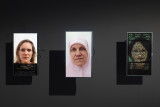
Hoe prikkelen designers en storytellers onze verbeelding over de invloed van digitale connectie op ons leven?
Sinds 1991 kunnen we massaal 'online' en ligt de digitale wereld aan onze voeten: Skypen met de andere kant van de globe, alles wat je wenst on demand beschikbaar. Ook onze huizen zijn hard op weg 'smart' te worden, zo laat je 'connected' prullenbak zelf weten dat hij vol zit. Ondertussen verzamelen sociale netwerken en IoT producten steeds meer data over ons. Betekent dit een utopische toekomst of streven we af op dystopische taferelen zoals in Black Mirror? Samen met storytellers, ontwerpers en filmmakers ontrafelen we de invloed van deze technologieën op ons dagelijks leven. Hoe zetten deze multimediale projecten ons aan het denken over onze dagelijkse connectie, what's next?
Life Is Internet
Het werk van kunstenaar Jeroen van Loon neemt je mee naar de off-en online wereld. Zo documenteert zijn project Life Needs Internet digitale cultuur middels handgeschreven brieven. Sinds 2010 verzamelt hij brieven waarin mensen vanuit de hele wereld schrijven over de invloed van het internet op hen dagelijks leven. Samen vormen deze brieven een archief van onze veranderde relatie met het internet. Hoe ‘connected’ zijn we en wat betekent internet voor ons?
Smarter Homes
Als interactie designer, product designer en ondernemer focust Alexandra Deschamps Sonsino zich op de ontwikkelingen binnen Internet of Things en de manier waarop technologie ons dagelijks leven beïnvloedt. Met succesvolle projecten als Good Night Lamp, een lamp die familie en vrienden wereldwijd verbindt, en als oprichter van consultancy bureau designswarm onderzoekt ze de toekomst van IoT. Haar nieuwste boek ‘Smarter Homes’ onderzoekt de geschiedenis van slimme woningen en wat essentieel is voor designers die werken met IoT. Hoe ontwerp je slimme producten die IoT waardig zijn?
Home Smart Home
Je stofzuiger geeft je huis zomaar een schoonmaakbeurt en boodschappen bestel je via Amazon-assistent Alexa. Met het project Home Smart Home verkent het VPRO Medialab de gevolgen van IoT en de technologische (on)mogelijkheden op ons leven, relaties en identiteit. Het project bestaat uit een interactieve experience, korte films en een film-en debatavond en wordt gepresenteerd tijdens Dutch Design Week. Daan Colijn vertelt hoe het project tot stand is gekomen. Volgen deze apparaten klakkeloos jouw wensen of hebben ze ook invloed op jou?
Speciaal voor Home Smart Home creëerden filmmaker Nils Vleugels en Anouk Vleugels de korte film ‘Maya’. Een modern liefdesverhaal waarin Tom’s digitale assistent eerder weet dan hij dat zijn vriendin hem gaat dumpen. Zij begint maatregelen te nemen om de klap voor Tom te verzachten – maar helpen deze hem nou of werken ze juist tegen hem?
Stay up to date
Get notified about new updates, opportunities or events that match your interests.

